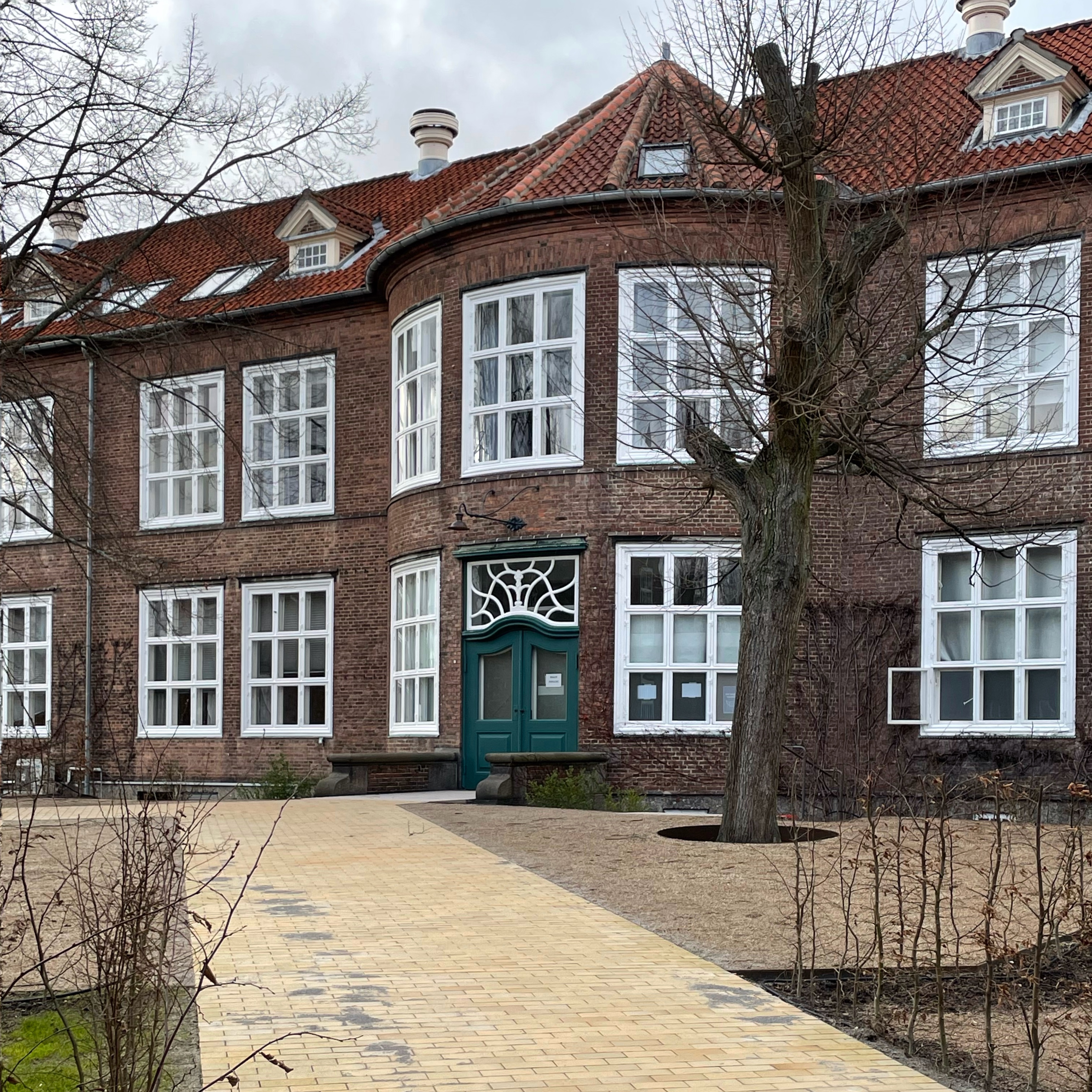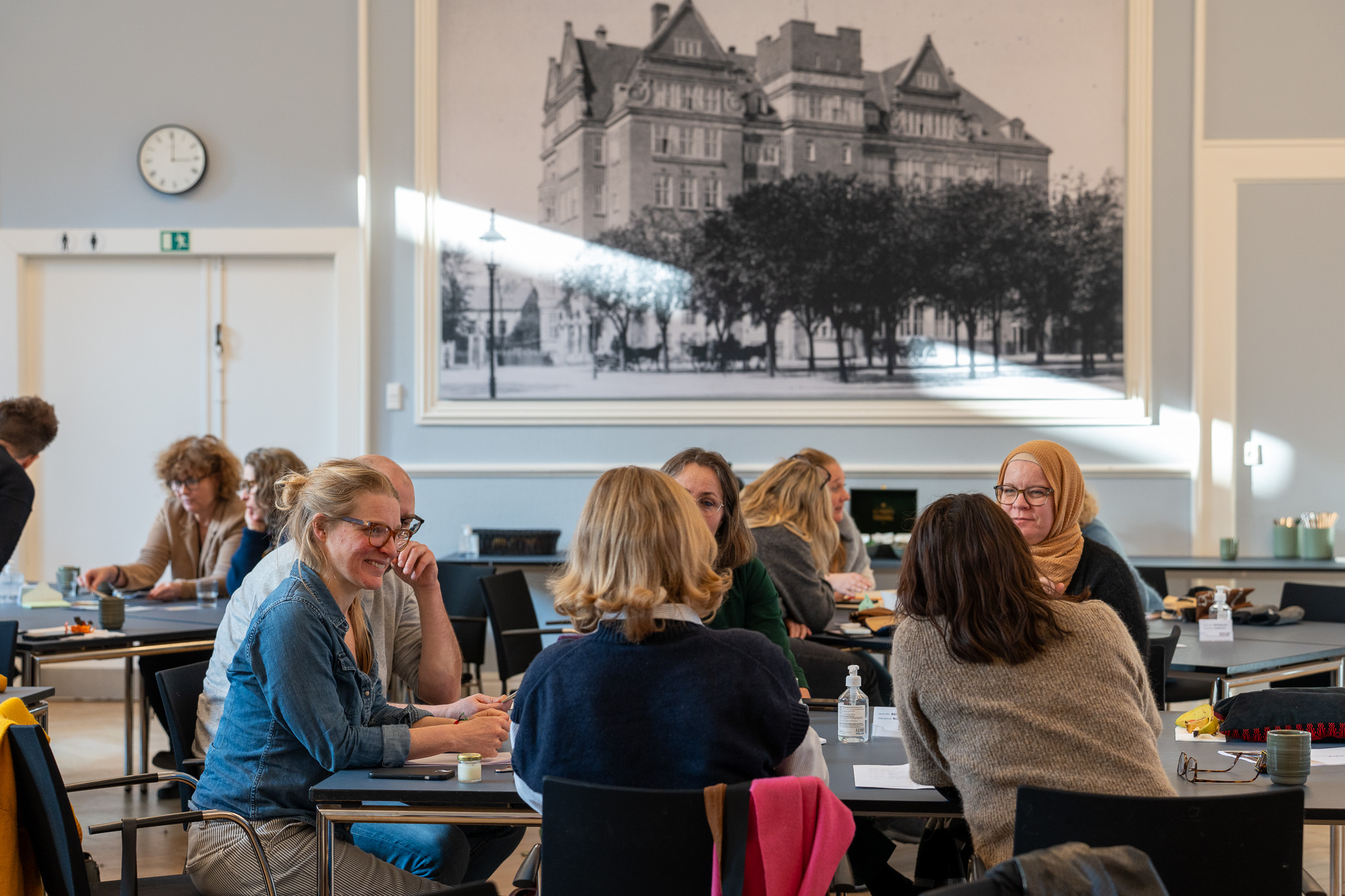
People with brain injury should be heard, even if they need assistance to do so

At Bevica Fonden, we use advanced AI-based translation tools to make our Danish content accessible in English. However, some content – particularly academic articles and nuanced texts – require a level of linguistic accuracy and subject-specific precision that automated tools cannot yet guarantee.
This is why this article is available only in its original language (Danish). We have chosen not to offer an English version in order to preserve the integrity, clarity, and scholarly intent of the original work.
In his PhD project, Frederik Gybel Jensen is researching how, with the right help, people with brain injury following a stroke can have an active voice when it comes to their treatment. They are often not heard because they have trouble expressing themselves and understanding information from the hospital.
by Nanna Stærmose
People with a brain injury sometimes find it difficult to speak, read and comprehend texts. And this can affect their treatment.
“A person’s treatment will be affected when they suddenly can’t answer questions about how they feel or can’t read or understand the material provided by the hospital,” says Frederik Gybel Jensen.
He is a PhD student at the Department of Neurology at Rigshospitalet (Copenhagen University Hospital), and his project investigates how we can make digital systems used by the public authorities more accessible for people with aphasia.
According to the Danish Health Authority, approximately 12,000 Danes suffer from a stroke each year (a blood clot or haemorrhage in the brain). And approximately one-third of that group have difficulty communicating after a stroke, a condition known as aphasia. This is the group of people Frederik Gybel Jensen is focusing on in his PhD project. The aim of the project is to examine how digital systems can be designed to better accommodate people with aphasia. The digitalisation of the healthcare system includes the Patient Reported Outcome (PRO) questionnaires that are used to give patients a more active voice in their own treatment.
Short sentences and pictograms
It can be hard for people with aphasia to fill out a PRO questionnaire. As part of his PhD project, Frederik Gybel Jensen has tailored an existing pilot questionnaire to accommodate people with aphasia. The questionnaire has been sent to 1,000 people, and Frederik is currently analysing the data from the questionnaire.
“The first thing we’re looking at is whether the participants were even able to complete the questionnaire. The next step will be to analyse any barriers they encountered and look at how we can develop a questionnaire that works,” says Frederik Gybel Jensen.
The language in the questionnaire has been simplified, there is only one question per page, and the questions are aided by pictograms.
“People with aphasia can have trouble understanding what is being communicated to them compared to people without aphasia. It’s about giving them more options, which is why pictograms can be really useful. For example, a question about the patient’s reading ability can be accompanied by a pictogram of a person reading a newspaper,” explains Frederik Gybel Jensen.
Each question is also accompanied by a colour scale, where red means great difficulty and green means no difficulty. Frederik Gybel Jensen’s original intention was to develop a solution where the questions could be read aloud to the patient, but he ran into a technical difficulty. The questionnaire is an integrated part of the Danish healthcare platform Min Sundhedsplatform and it was not possible to include a read out loud option.
“In the long run, it will be important that we work together with the people responsible for the technological solutions so we can develop a tool that works,” he says.
Not everyone is the same
Frederik Gybel Jensen believes that technology can both include and exclude people with aphasia. On the one hand, it can be hard for some people to use their phones or a computer, and on the other hand, they may need to have things read aloud to them. He believes it will be difficult to develop a tool that works for everyone – those who have suffered a brain injury and those who have not.
“I think some people need a solution that is so specialised that it will be impossible to develop something that works for everyone,” he says.
The questionnaire was sent to people with and without aphasia, and he does not yet know how it was received. Regardless, he does think the knowledge the researchers will gain can be applied to other patient groups, for example people with dementia. But he does not believe it will be possible to develop a one-size-fits-all solution. On the other hand, he does believe in the importance of inclusion.
“There is a universality in creating solutions that make allowances for the fact that not everyone is the same, but everyone has an equal right to access health services and to be an active participant in their own treatment,” says Frederik Gybel Jensen.
More about the project
His PhD project is researching how the digital systems used by public authorities can be made more accessible for people with aphasia. He expects to finish his PhD during the summer of 2024.
The project is a collaboration between the Danish Health Data Authority’s PRO Secretariat, Rigshospitalet and Zealand University Hospital.
More knowledge about Universal Design
Explore the Bevica Foundation's Knowledge Library
Latest News
Follow the latest news from the Bevica Foundation below.






